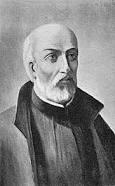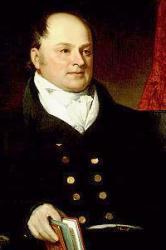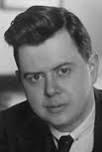Planning worship?
Check out our sister site, ZeteoSearch.org,
for 20+ additional resources related to your search.
- |
User Links
Person Results
Gabriel Davis
1768 - 1824 Person Name: Gabriel Davis, d. 1824 Topics: Proper 23 Year C Composer of "MONMOUTH" in Common Praise
Gabriel Davis
George Cooper
1820 - 1876 Person Name: George Cooper, 1820-1876 Topics: Year C Easter 2 Composer of "ST SEPULCHRE" in Complete Anglican Hymns Old and New Cooper (actually George Cooper III) came from a long line of organists who played at St. Sepulchre’s Church, Newgate Street, London, throughout the 19th Century. One of his earliest appointments was to St. Benet’s Church in Upper Thames Street, where later John Stainer officiated (1854-56). Cooper was also one of the organists of the Chapel Royal, was organist and music master at Christ’s Hospital, and in 1843, he succeeded his father as assistant to John Goss at St. Paul’s. He was the first editor to supervise the production of the new Wesleyan Tune-Book (both he and his successor Gauntlett passed away while the work was in progress; it was finished by Edward Hopkins). Cooper’s works include:
Organ Arrangements
Organist’s Assistant
Organist’s Manual
--www.hymntime.com/tch/
George Cooper
Darlene Zschech
b. 1965 Topics: Year C Christ the King; Years A, B, and C Ascension Day; Years A, B, and C Easter Vigil Author of "My Jesus, my Saviour" in Complete Anglican Hymns Old and New
Darlene Zschech
Alfred J. Eyre

1853 - 1919 Person Name: A. J. Eyre, 1853-1919 Topics: Epiphany III Year C; Proper 5 Year C Composer of "SELBY" in Common Praise Born: October 24 1853, Lambeth, England.
Died: October 11, 1919, Lower Norwood, England.
Buried: Elmer’s End Cemetery (also known as the Beckenham Crematorium), Norwood, England.
Eyre studied at the Royal Academy of Music & served as organist at St. Peter’s, Vauxhall (1867-72 & 1874-81); St. Ethelberga’s, Bishopgate (1872-74); St. John the Evangelist, Upper Norwood, London (1881); & at the Crystal Palace (1880-94).
--www.hymntime.com/tch
Alfred J. Eyre
Jean de Brébeuf

1593 - 1649 Topics: Christmas Eve Year C; Christmas Day 1 Year C Author of "'Twas in the Moon of Wintertime" in Voices United Jean de Brébeuf, Jesuit missionary, born at Condé-sur-Vire in Normandy, 25 March, 1593; died in Canada, near Georgian Bay, 16 March, 1649. His desire was to become a lay brother, but he finally entered the Society of Jesus as a scholastic, 8 November, 1617. According to Ragueneau it was 5 October. Though of unusual physical strength, his health gave way completely when he was twenty-eight, which interfered with his studies and permitted only what was strictly necessary, so that he never acquired any extensive theological knowledge. On 19 June, 1625, he arrived in Quebec, with the Recollect, Joseph de la Roche d' Aillon, and in spite of the threat which the Calvinist captain of the ship made to carry him back to France, he remained in the colony. He overcame the dislike of the colonists for Jesuits and secured a site for a residence on the St. Charles, the exact location of a former landing of Jacques Cartier. He immediately took up his abode in the Indian wigwams, and has left us an account of his five months' experience there in the dead of winter. In the spring he set out with the Indians on a journey to Lake Huron in a canoe, during the course of which his life was in constant danger. With him was Father de Noüe, and they established their first mission near Georgian Bay, at Ihonatiria, but after a short time his companion was recalled, and he was left alone.
Brébeuf met with no success. He was summoned to Quebec because of the danger of extinction to which the entire colony was then exposed, and arrived there after an absence of two years, 17 July, 1628. On 19 July, 1629, Champlain surrendered to the English, and the missionaries returned to France. Four years afterwards the colony was restored to France, and on 23 March, 1633, Brébeuf again set out for Canada. While in France he had pronounced his solemn vows as spiritual coadjutor. As soon as he arrived, viz., May, 1633, he attempted to return to Lake Huron. The Indians refused to take him, but during the following year he succeeded in reaching his old mission along with Father Daniel. It meant a journey of thirty days and constant danger of death. The next sixteen years of uninterrupted labours among these savages were a continual series of privations and sufferings which he used to say were only roses in comparison with what the end was to be. The details may be found in the "Jesuit Relations".
In 1640 he set out with Father Chaumonot to evangelize the Neutres, a tribe that lived north of Lake Erie, but after a winter of incredible hardship the missionaries returned unsuccessful. In 1642 he was sent down to Quebec, where he was given the care of the Indians in the Reservation at Sillery. About the time the war was at its height between the Hurons and the Iroquois, Jogues and Bressani had been captured in an effort to reach the Huron country, and Brébeuf was appointed to make a third attempt. He succeeded. With him on this journey were Chabanel and Garreau, both of whom were afterwards murdered. They reached St. Mary's on the Wye, which was the central station of the Huron Mission. By 1647 the Iroquois had made peace with the French, but kept up their war with the Hurons, and in 1648 fresh disasters befell the work of the missionaries — their establishments were burned and the missionaries slaughtered. On 16 March, 1649, the enemy attacked St. Louis and seized Brébeuf and Lallemant, who could have escaped but rejected the offer made to them and remained with their flock. The two priests were dragged to St. Ignace, which the Iroquois had already captured.
On entering the village, they were met with a shower of stones, cruelly beaten with clubs, and then tied to posts to be burned to death. Brébeuf is said to have kissed the stake to which he was bound. The fire was lighted under them, and their bodies slashed with knives. Brébeuf had scalding water poured on his head in mockery of baptism, a collar of red-hot tomahawk-heads placed around his neck, a red-hot iron thrust down his throat, and when he expired his heart was cut out and eaten. Through all the torture he never uttered a groan. The Iroquois withdrew when they had finished their work. The remains of the victims were gathered up subsequently, and the head of Brébeuf is still kept as a relic at the Hôtel-Dieu, Quebec.
His memory is cherished in Canada more than that of all the other early missionaries. Although their names appear with his in letters of gold on the grand staircase of the public buildings, there is a vacant niche on the façade, with his name under it, awaiting his statue. His heroic virtues, manifested in such a remarkable degree at every stage of his missionary career, his almost incomprehensible endurance of privations and suffering, and the conviction that the reason of his death was not his association with the Hurons, but hatred of Christianity, has set on foot a movement for his canonization as a saint and martyr. An ecclesiastical court sat in 1904 for an entire year to examine his life and virtues and the cause of his death, and the result of the inquiry was forwarded to Rome. [He was canonized in 1930. --Ed.]
--www.newadvent.org/cathen/02751b.htm
Jean de Brébeuf
Roger Chapal
b. 1912 Person Name: Roger Chapal Topics: Year C, Thanksgiving Day, Canada, 2nd Monday in October; Year C, Thanksgiving Day, USA, 4th Thursday in November Translator (into French) of "All People That on Earth Do Dwell" in Psalms for All Seasons
Roger Chapal
John Quincy Adams

1767 - 1848 Author of "O heal me, Lord, for I am weak" Adams, John Quincy. (Braintree, Mass., July 11, 1767-February 21, 1848, Washington, D.C.). Most of Adams' verse, both religious and secular, was written after he had left the Presidency. In his later years he composed a metrical version of the Psalms, best described as a free rendering in fairly good verse of what he felt was the essential idea of each Psalm. When his minister, William P. Lunt, of the First Parish, (Unitarian), Quincy, Mass., undertook the preparation of his hymn book The Christian Psalter, Mrs. Adams put the manuscript of her husband's metrical Psalms into Lunt's hands, and the latter included 17 of them in his book, and five other hymns by his distinguished parishioner.
The effect on Adams is recorded in a moving entry in his Journal which reveals an aspect of his character quite unknown to those who regarded him as an opinionated and uncompromising though sincere and upright politician. He wrote on June 29, 1845:
"Mr. Lunt preached this morning, Eccles. III, 1. For everything there is a season. He had given out as the first hymn to be sung the 138th of the Christian Psalter, his compilation and the hymn-book now used in our church. It was my version of the 65th Psalm; and no words can express the sensations with which I heard it sung. Were it possible to compress into one pulsation of the heart the pleasure which, in the whole period of my life, I have enjoyed in praise from the lips of mortal man, it would not weigh a straw to balance the ecstasy of delight which streamed from my eyes as the organ pealed and the choir of voices sung the praise of Almighty God from the soul of David, adapted to my native tongue by me. There was one drawback. In the printed book, the fifth line of the second stanza reads, "The morning's dawn, the evening's shade," and so it was sung, but the corresponding seventh line of the same stanza reads, "The fields from thee the rains receive," totally destroying the rhyme. I instantly saw that the fifth line should read, "The morning's dawn, the shades of eve," but whether this enormous blunder was committed by the copyist of the pressman I am left to conjecture."
After Adams' death his verses, both religious and secular, were published in a small volume entitled Poems of Religion and Society, New York, 1848, which ran to a fourth edition in 1854. This collection included the five hymns and 17 metrical Psalms printed in the Christian Psalmist, unchanged except that the opening line of each psalm has been substituted for the number of the psalm as its heading. Nor was the misprint which Adams lamented amended.
--Henry Wilder Foote, DNAH Archives
=================================
Adams, John Quincy. Born at Braintree (afterwards called Quincy), Mass., 1767, was a son of President Adams. After graduating at Harvard College he was, from 1794 to 1801, minister to the Netherlands, to England, and to Prussia. In 1806 he was appointed Professor of Rhetoric in Harvard College; in 1809 minister to Russia; 1817 Secretary of State; and, from 1824 to 1829, President of the United States. In 1831 he was elected a Member of the House of Representatives. Died suddenly, Feb. 21, 1848. His high position and principle are well known, as also the incidents of his political life. He was a member of the Unitarian body. His Memoir, by the Hon. Josiah Quincy, was published soon after his death, and also his Poems of Religion and Society, N. Y., 1848 (4th ed., 1854). He wrote, but never printed, an entire Version of the Psalms, seventeen of which, with five hymns, were inserted by his pastor, Dr. Lunt, in the Christian Psalmist, 1841. Of these the following are still in use:—
1. Sure to the mansions of the blest. [Burial.] This is part of a piece of 20 stanzas, which appeared in the Monthly Anthology and Boston Review, Jan., 1807. It is entitled "Lines addressed to a mother on the death of two infants, 19th Sept. 1803, and 19th Decr., 1806."
2. Alas! how swift the moments fly. [Time.] Sometimes given as "How swift, alas, the moments fly," was written for the 200th anniversary of the First Congregational Church, Quincy, Sept. 29, 1839.
3. Hark! 'tis the holy temple bell. [Sunday.] Of these Nos. 2 and 3 are found in Lyra Sacra Americana and 2 in Putnam's Singers and Songs of the Liberal Faith, 1875. [Rev. F. M. Bird, M.A.]
-- John Julian, Dictionary of Hymnology (1907)
John Quincy Adams
Herbert O'Driscoll
b. 1928 Topics: Palm/Passion Sunday Year C; Easter 2 Year C; Proper 18 Year C Author of "God, When I Stand" in Voices United O'Driscoll, Herbert. (Cork, Ireland, October 17, 1928-- ). Anglican. Graduated from Trinity College, Dublin, 1951. Pastorates at Monkstown (Ireland), 1952-1954; Ottawa, Ontario, 1954-1957, 1962-1968; Dartmouth, Nova Scotia, 1957-1960 (naval chaplaincy); Carp, Ont., 1960-1962; Vancouver, British Columbia, (dean), 1968-1982. In 1982 he moved to Washington, D.C. to become the warden of the College of Preachers at Washington Cathedral, but returned to Canada after one year.
In both his hymns and his published sermons, he uses traditional techniques to set forth contemporary concerns, so that his work is unusually approachable.
--Hugh D. McKellar, DNAH Archives
Also:
O'Driscoll, T. Herbert (Thomas Herbert)
O'Driscoll, Thomas Herbert
Herbert O'Driscoll
Sir Ernest MacMillan

1893 - 1973 Person Name: Ernest Campbell MacMillan Topics: Easter 1 Year C Arranger of "VULPIUS (GELOBT SEI GOTT)" in Voices United Ernest MacMillan (Conductor)
Born: August 18, 1893 - Mimico, Canada
Died: May 6, 1973 - Toronto, Canada
The eminent Canadian conductor and composer, Sir Ernest (Alexander Campbell) MacMillan, began his organ studies with Arthur Blakeley in Toronto at age 8, making his public debut at 10. He continued his organ studies with A. Hollins in Edinburgh from 1905 to 1908, where he was also admitted to the classes of F. Niecks and W.B. Ross at the University.
Ernest MacMillan was made an associate (1907) and a fellow (1911) of London’s Royal College of Organists, and in 1911 received the extramural Bachelor of Music degree from the University of Oxford. He studied modern history at the University of Toronto from 1911 to 1914, before receiving piano instruction from Therese Chaigneau in Paris in 1914. In 1914 he attended the Bayreuth Festival, only to be interned as an enemy alien at the outbreak of World War I. While being held at the Ruhleben camp near Berlin, he gained experience as a conductor. He was awarded the B.A. degree in absentia by the University of Toronto in 1915. His ode, England, submitted through the Prisoners of War Education Committee to the University of Oxford, won him his Doctor of Music degree in 1918.
After his release, Ernest MacMillan returned to Toronto as organist and choirmaster of Timothy Eaton Memorial Church from 1919 to 1925. In 1920 he joined the staff of the Canadian Academy of Music, and remained with it when it became the Toronto Conservatory of Music, serving from 1926 to 1942 as its principal. He was also dean of music faculty at the University of Toronto from 1927 to 1952.
Ernest MacMillan was conductor of the Toronto Symphony Orchestra from 1931 to 1956, and of the Mendelssohn Choir there from 1942 to 1957. He also appeared as guest conductor in North and South America, Europe, and Australia. He served as president of the Canadian Music Council from 1947 to 1966, and of the Canadian Music Centre from 1959 to 1970. In 1935 he was the first Canadian musician to be knighted, an honour conferred upon him by King George V. He also received honorary doctorates from Canadian and USA institutions. He conducted many works new to his homeland, both traditional and contemporary.
--www.bach-cantatas.com/
Sir Ernest MacMillan
Thomas Wright
1763 - 1828 Person Name: Thomas Wright, 1763-1829 Topics: Lent I Year C; Proper 17 Year C Composer of "STOCKTON" in Common Praise Thomas Wright, of Stockton upon Tees, organist and composer
LOC Name Authority File
Thomas Wright


 My Starred Hymns
My Starred Hymns


